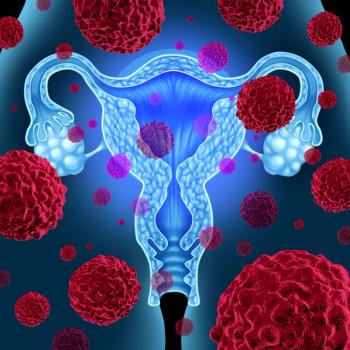
- ONCOLOGY Vol 14 No 3
- Volume 14
- Issue 3
FHIT Gene, Smoking, and Cervical Cancer
At the recent annual meeting of the Society of Gynecologic Oncologists (SGO), researchers announced findings suggesting that the putative tumor-suppressor gene-the fragile histidine triad (FHIT) gene-may be central to the development of
At the recent annual meeting of the Society of Gynecologic Oncologists (SGO), researchers announced findings suggesting that the putative tumor-suppressor genethe fragile histidine triad (FHIT) genemay be central to the development of cervical cancer. The gene appears to be particularly susceptible to carcinogens from cigarette smoke, and cigarette smoking is an epidemiologic risk factor for cervical cancer.
Cigarette smoke carcinogens have been found in cervical mucus. The FHIT gene is frequently altered in smoking-associated lung cancer and is located on chromosome 3p14.2, surrounding FRA3B, one of the most fragile sites of the human genome and a known human papillomavirus (HPV) integration site.
The human papilloma virus is detected in more than 90% of all squamous cell carcinomas of the uterine cervix, and is thought to be integral to the development of cervical cancer. However, the reported annual rates of HPV infection are over 1,000 times higher than the annual incidence of cervical cancer, and at least 90% of HPV infections resolve spontaneously. Therefore, other carcinogenic cofactors are important in the evolution of cervical cancer, one of which is cigarette smoking.
Cigarette Smoking and the FHIT Gene
The study was conducted by Christine H. Holschneider,MD, Rae Lynn Baldwin, MD, Jeffrey S. Epstein, MS, and Beth Y. Karlan, MD, of Cedars Sinai Medical Center and the University of California, Los Angeles; and Juan C. Felix, MD, University of Southern California. The researchers hypothesized that cigarette smokingassociated cervical cancer may share certain pathogenetic features with other tobacco-associated malignancies. Studies of lung cancers and premalignant pulmonary lesions have demonstrated a strong association between cigarette smoking and alterations in the FHIT gene.
The researchers reviewed archival tissues of 37 patients (17 smokers, 20 nonsmokers) who had undergone radical hysterectomy for squamous cell carcinoma of the cervix. Data on patient age, race, smoking habits, tumor grade, and date of radical hysterectomy were extracted from medical records. Patients were only included in the study if their smoking status was clearly documented in at least two different sites in the hospital chart, such as the admission records, consultations, or anesthesia notes. From each specimen block, contiguous sections were prepared and used for immunohistochemistry and laser capture microdissection.
Study Results
The human papillomavirus was detected in 92% of the tumors, 88% of dysplasias, and 85% of nondysplastic epithelia adjacent to the tumor. There was no significant difference in the HPV status of smokers vs nonsmokers. However, a reduction of FHIT protein expression, as well as homozygous deletions at the FHIT gene locus, occurred significantly more frequently in the tumors of smokers vs nonsmokers. The researchers are currently investigating whether FHIT is a potential genetic link between cigarette smoking and cervical cancer.
Articles in this issue
almost 26 years ago
IOM Medical Error Estimates Questioned, But Legislation Consideredalmost 26 years ago
Less Toxic Therapies for Hodgkin’s Disease May Reduce Secondary CancersNewsletter
Stay up to date on recent advances in the multidisciplinary approach to cancer.















































